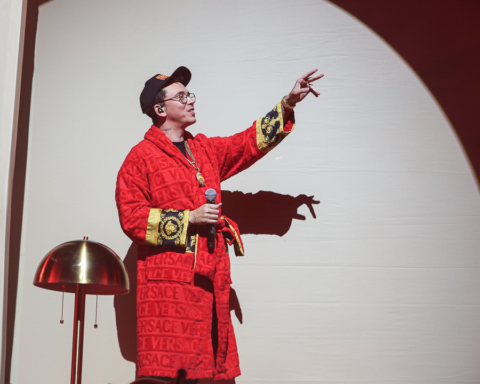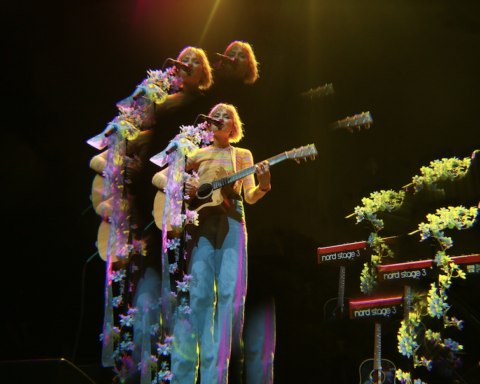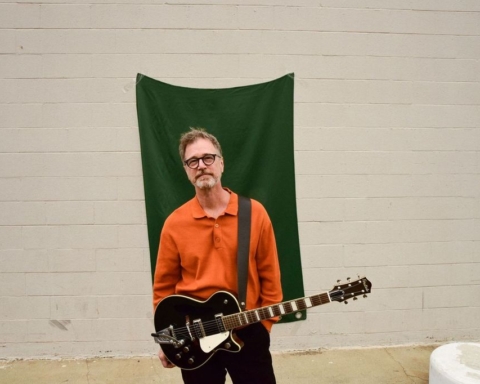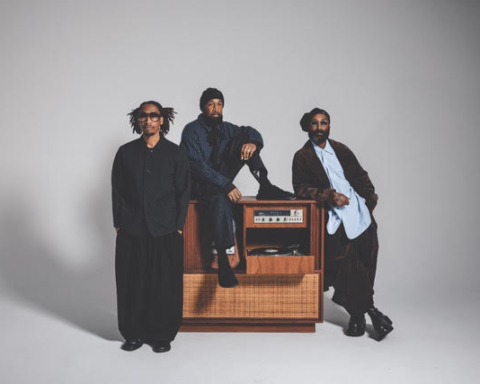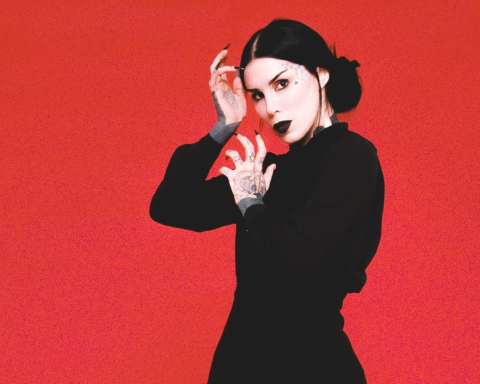Craig David, the legendary British singer-songwriter, is embarking on his 7 Days Commitment Tour this spring. As his first US tour with a live band in nearly two decades, this 7-day exclusive will hit major cities across the U.S. and Canada with a stop at the Masonic in San Francisco on May 6.
We caught up with Craig to discuss what inspired him to keep going after so many decades of performing, why he thinks his music resonates with so many, and how he chooses musicians to collaborate with.
You’ve had an incredible career spanning decades. What keeps you inspired and motivated to continue making music?
For me, I’m a music man at heart, and I just love being able to see a creation in the studio that no one in the world has heard before. And the excitement and the feeling that I’m getting internally — to hopefully have people hear this and have that same feeling, which is the thing that makes me want to go into the studio — makes me want to create music. Because it hits in a way that’s different than any other language — it goes straight to your soul. So, that’s a gift for me, and a gift to be able to share that with the world.
Your music has resonated with audiences across generations. How do you approach creating music that appeals to both longtime fans and new listeners?
I’ve found that my signature sound is always stemming from R&B. R&B music is what I listened to growing up, as well as hip-hop. I was in the culture in the U.K. of listening to dance music and pop music, and I felt that all of those sounds allowed me to lean into the different genres, but ultimately always have the signature sound of R&B throughout. The first album in particular, having songs like “Rewind” and “… Fill Me In,” which were the U.K. garage sounds, but also having songs like “7 Days” which is a straight-up R&B/Pop song, and having “Walking Away” which is more of a pop-rock song, it allowed this flexibility throughout my career to always be able to touch on those genres without it feeling like I’m moving too far away from what my roots are and what I originally created.
This is a blessing, because I feel that my original fans are cool with me when I do a garage tune, or cool if I do an R&B tune, or cool if I do something that’s a bit more pop-rock, and the new fans who are just discovering me are like: “We’ll take whatever the new version is of you.” It just seems that both generations are connecting at different points, almost like a time traveler where they’re connecting and listening to the same music together, but their entry point was from a different time.
Collaborations have been a significant part of your career, from Sting to Bastille. How do you choose who to collaborate with, and what do you think makes for a successful musical partnership?
I’d say that collaborations start in the studio. It starts with the producer I’m working with, the songwriter I’m working with, and that collaboration can become an extension when you’re working with an artist who also writes music, and they’re able to give you their creative and unique talents in a safe space of a studio. So I feel collaborations are a moment where you can share your ideas, share your feelings, share your musical talents, and that melting pot can create something that’s beautiful. It’s like having different cooks in a kitchen, all with their own specialty, but everybody knows how to cook. So, someone will throw in some spices, and someone will throw in a different way of adding oil and cooking it and adding some different vegetables, and all of a sudden, you have this incredible dish. So I feel that my ability to hold space for those moments to happen can lead to working with incredible artists like Sting or Bastille because they were very organic.
The Sting collaboration came through me sampling “Shape of My Heart” and writing a new top-line melody and lyric over the top. When I asked Sting if he would give me permission to use that, not only did he say “yes,” but he also gave me publishing in that song, as well, which he didn’t have to do, for such an iconic guitar riff and sample. When I asked him if he’d be on the song, he asked his daughter at the time what she thought about it, she came back and said (and I’m paraphrasing but along the same lines): “Dad, you need to do this. You have to.” He then came to the studio and recorded his vocals on it. So, I feel everything was very aligned, and the music just brought everyone together.
Same for Bastille. It was a call. I just said “I’m in the studio working,” and he (Dan from Bastille) happened to be around the corner. Next thing you know, he was in the studio with me, Fraser T. Smith, and Carmen Reece, who was a songwriter on the record, and we finished the song. So, I love how things all come together.
You’ve seamlessly blended elements of R&B, garage, and pop throughout your career. How do you navigate genre boundaries and maintain your signature sound while continuing to innovate?
My natural go-to is R&B in my technique, in the way in which I approach melodies — the runs and the riffs that I do are very R&B in nature, and I feel that having that core sound that is my USP, when I do sing over a house track, a dance tune, or a garage song, or a straight up R&B song. It always feels like I’m actually bringing something to the table as opposed to straying so far away from what I do, because I feel I’m always bringing what I do to any table I go to. And as a songwriter, you want to experiment. You want to try things out. And I feel that that’s something that I pride myself in is being able to lean into situations that can be new and different and not feeling that there’s a weight or expectation of me having to create something that you’ve heard before.
I’ve also found over my career, which has been one of the best moves that I’ve made, is that I appreciate all the accolades and the recognition I’ve had over the years. But when I walk in with a new artist or a new producer in particular, and they may have heard my music through their older sister or brother, and they’ll reference songs from a certain era that they were introduced to my music, I always feel that at that moment, there’s a slight disconnect, because it’s sort of vicariously through an older brother or sister.
So when I go onto the microphone, I feel that moment is when I can have a chance to connect with this 18/19/20-year-old producer. And I’ll go into the vocal booth, and I’ll sing my heart out like it was the first time I ever sang, and when I get the producer responding like “Oooo, Craig, you still got it,” at that point, everything’s become real-time. And I’m having a real connection right now, now that I know that this producer is seeing me for who I am today. And I feel that’s served me well over my career, rather than trying to sell what I’ve done in the past as an entry point. In this, I go in as a new artist every time, and let’s see what we can create today.
With the music industry constantly evolving, what do you see as the biggest challenges and opportunities for artists today, particularly in the R&B genre
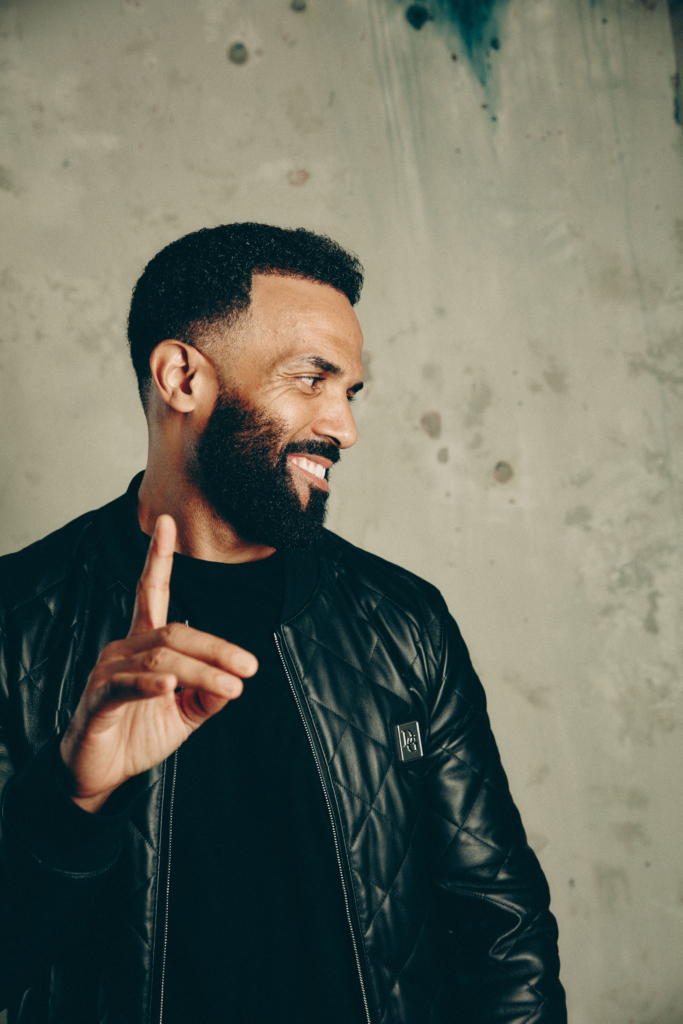
I feel if we go back to what music is really about, and we take out the business part of it for a moment, it’s a form of play. You record music to play. You perform to play. It’s the art. It’s like acting, painting, drawing, or playing a musical instrument, it’s all forms of art, that I’ve always seen as play. But the underlying wisdom in all of those things is they connect to people’s hearts – they go straight to your soul. And I find that’s why entertaining people is something that we all enjoy, you know?
You go to the movies to watch a film, or you go to see a show because you want to see an artist perform, or you want to go to a gallery and look at an artist and see what they’ve created. So I feel that when you look at it from a playful perspective, music should always stay that. It’s only when we tend to add on expectations of what those things should do is when it comes with all the baggage:
“This song needs to have a certain amount of streams.”
“This song has to be played on radio.”
“This song needs to be charted at the top of the charts for it to be valuable.”
And I disagree with that. The feeling you have when you’re creating something is the value. At that point, when you get that feeling, that feeling will translate. And it may not be the same timeframe that you’ve set up for it. It could be in 10 years that that song finds its gravitas, and someone samples it, and all of a sudden, that song becomes the biggest thing ever. You never know how it’s all going to play out. So I feel if we can just get back to the play in all of this, then what happens is you don’t lose the spirit of what you’ve gotten into this whole thing for.
And I understand the commercial side of things and what that brings, and you want to have success because that then leads to selling tickets, and then you can do bigger and better things: I get all of that. But I’ve just realized that if you’re not having fun and being playful with it all, then it’s become work. And music should never be work. It should be played, which means that for R&B music — play with it. Stay playful. Don’t look at the numbers, don’t worry about everything: it’s a marathon, not a sprint. And just enjoy what you’re doing at the moment, and it will all align. There’s always a plan.
Your latest project, the “7 Day Commitment Tour,” has garnered a lot of excitement. Can you share with us the inspiration behind the tour and what fans can expect from the experience?
I love to perform live. I love to perform with my band, and I feel there’s something special when I have band members on stage. It feels like a family on stage, performing songs that I know have deep relevance and have created deep memories, core memories, with people over the years. I feel my duty of care is to go up on stage and deliver those songs in a way that people have heard them on the records they’ve bought or streamed or downloaded it; however, you’ve heard the songs, to deliver in a way that honors the songs, but also lands them in a way that, “Wow, I’m actually here, present, delivering this song to you with sweat coming off my brow and moving around the stage.”
I feel there’s something just really special about being able to honor the songs as they were heard and to not get lost in having the songs sung so many times that you do such different renditions that it kind of steers a little bit away from that core memory that people have. And I feel it’s all about continuously landing the same vibe, the same frequency that I created when I was in the studio, then when it was released that I created, and then I go on stage and I give that again. So I just want people to go in, feel that feeling, and go away having a great time. That’s really what I’m committed to in the Commitment Tour. I’m committed throughout my career to keep delivering the songs, keep delivering them the way people would like to hear them, and hopefully, people feel it in their hearts and in their souls.
Finally, what message would you like to share with your fans who have supported you throughout your journey, and what do you hope they take away from your music?
I want to say thank you to everyone who’s enjoyed my music, everyone who’s shared a story or a memory about my music with their friends or can listen to a song and be transported back to a time. That could be from listening to it a week ago and being transported back to you going out with your friends or being with your family or meeting someone or seeing something while you were listening to that song, and it just brings you back to a moment. They’re like these time stamps that are created.
So I want to say thank you to all of my fans for creating beautiful memories to my songs continuously, and for changing my life. Because every time I go out and perform, and I see crowds of people coming to listen to that music and support me, it’s beautiful. It’s the biggest form of recognition you can have when someone tells you a story about how a song changed their life or connected with them in some way. To then have that magnitude magnified when you’re on stage and people are singing the words back to you of the song, and seeing it in their eyes that they’re in a place when singing that song, it’s the best feeling ever. So I’m just really grateful and looking forward to getting out to the States to do this tour. San Francisco’s going to be amazing, and I’m so looking forward to everyone having a good time.
Craig David plays The Masonic Auditorium on May 6
Main photo credit: Nicky Kelvin


